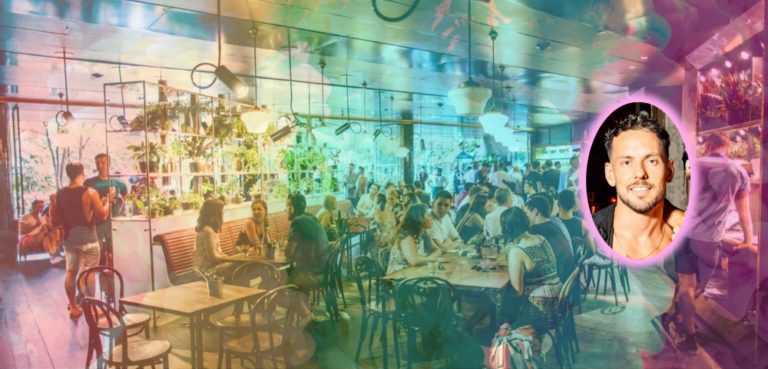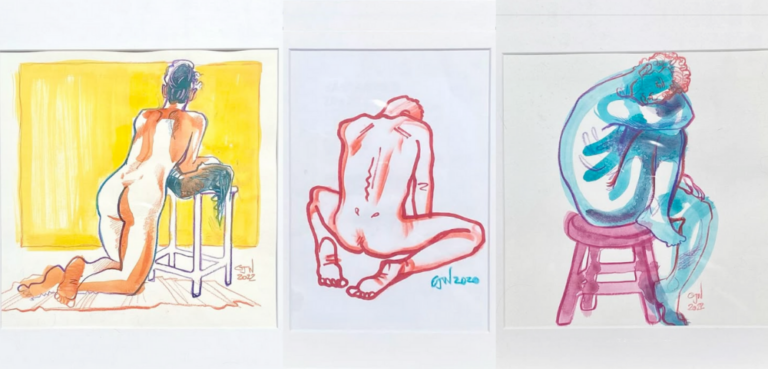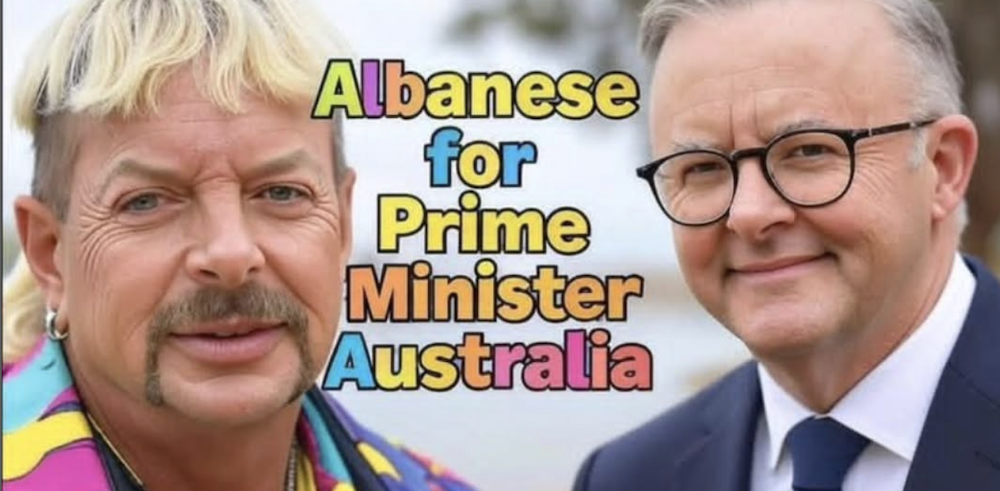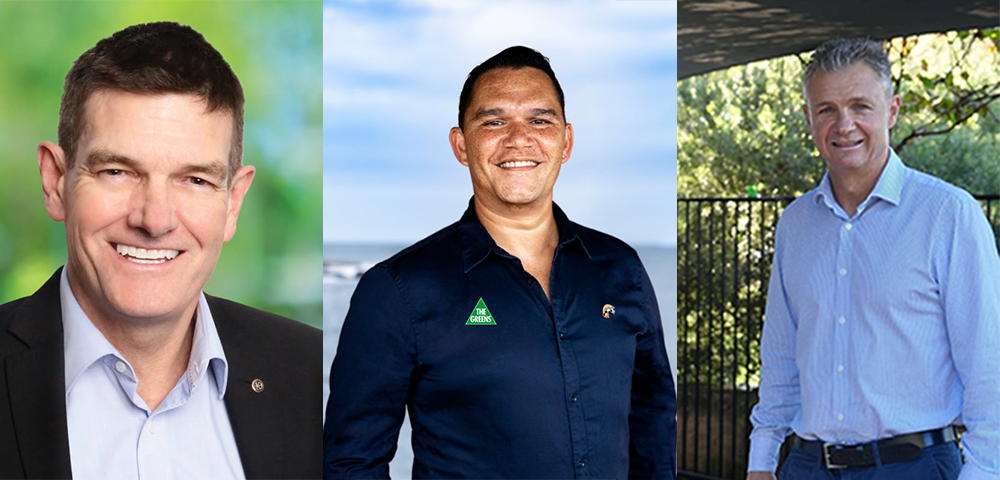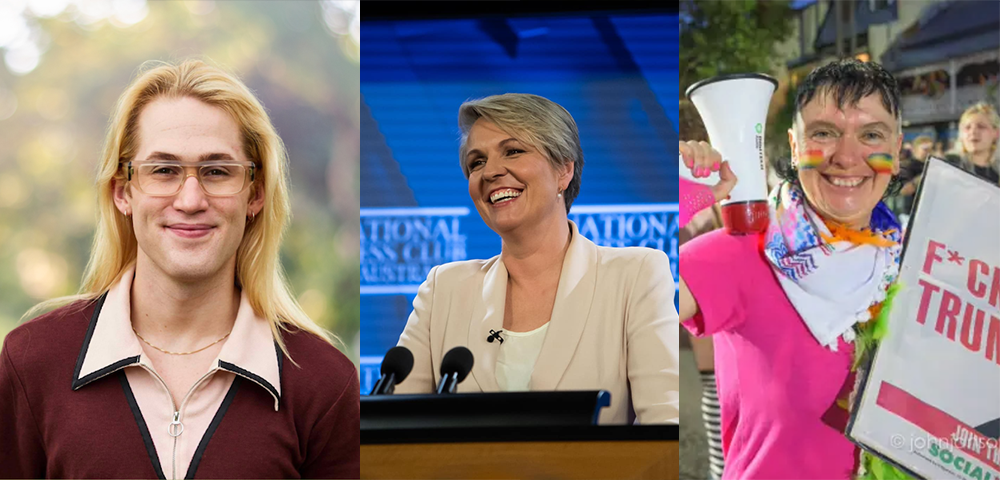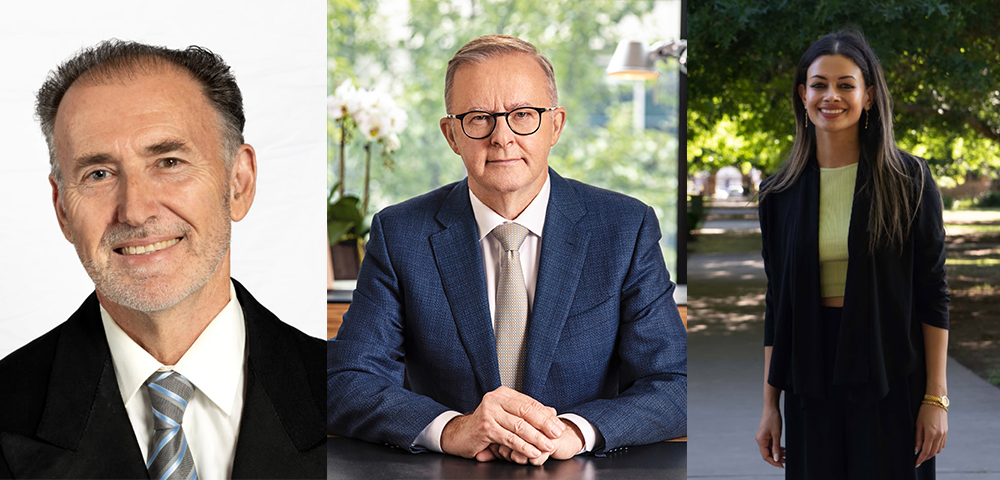
Jeffrey Bowyer-Chapman On Canada’s Drag Race & Online Bullies

Jeffrey Bowyer-Chapman may have sashayed away from hosting Canada’s Drag Race, but now the Canadian actor and model is speaking out about the intense online bullying and behind-the-scenes turmoil, which led him to walk away from the show.
Warning: This story has details of bullying and a suicide attempt, and might be distressing to some readers. For 24 hour crisis support and suicide prevention call Lifeline on 13 11 14. For Australia-wide LGBTQI peer support call QLife on 1800 184 527 or webchat.
In an extensive interview with The Hollywood Reporter, Bowyer-Chapman discussed the toxic environment of the production, as well as how the slings and arrows directed at him by the show’s fanbase affected him emotionally.
A Dream Job Turns Ugly
View this post on Instagram
Bowyer-Chapman, 36, joined the season one judging panel, after several appearances on RuPaul’s Drag Race, where he had “felt immediately at home.” For the fledgling judge it was an exciting opportunity. “Drag is magic,” he told THR.
His tenure proved short-lived after fans heavily criticised the actor’s pointed critiques of the contestants, as well as a perceived lack of knowledge about drag. A (failed) petition to have him removed as a judge even circulated around social media. The criticism soon turned personal, and malicious.
A sample of the comments on the Canada’s Drag Race official Instagram page illuminate the abuse Bowyer-Chapman endured.
“When Jeffrey talks it makes me cringe,” “Jeffrey is the worst judge ever,” “Fire Jeffrey, can’t stand him,” “Jeffrey needs to go! He’s ruining the show,” “R.I.P.@jeffreybchapman,” and “Jeffrey is insanely annoying to watch. An actor that can’t act.”
The backlash led Bowyer-Chapman to delete his Twitter account. RuPaul’s Drag Race UK season one contestant Crystal tweeted her outrage. “So the black queer judge on Canada’s Drag Race gets bullied off twitter. Ya’ll happy?”
Online trolling left Bowyer-Chapman Shaken
View this post on Instagram
“The amount of times that I was called a stupid n—er in my inbox from white, gay men was shocking — specifically because we were in the midst of a racial justice awakening,” Bowyer-Chapman told THR.
“I think that with me receiving all of the hate, and racism, and harassment, and death threats — it’s shone a light on the insanity of it. It really did show a lot of people how dark and how toxic the Drag Race trolls have become over the past couple of years and how unacceptable it is.”
For Bowyer-Chapman, the hate was particularly hurtful as much of it came from within the LGBTQ+ community. “As gay men, we unfortunately have grown accustomed to experiencing hate and vitriol and homophobia,” he told THR. “I guess I had just never experienced it from my own community. That was the part that was most heartbreaking.”
How Drag Race Producers Create Reality
View this post on Instagram
What fans didn’t realise was that his role as a judge was partially a product of the production, and not necessarily indicative of his own personal feelings.
Bowyer-Chapman told THR that judges were fed comments through earpieces and recorded negative commentary during post-production. “Even if we didn’t have anything negative to say, you had to come up with something negative,” he said.
The audience backlash was swift and came as a shock to Bowyer-Chapman, who “came into Canada’s Drag Race with a false sense of security because I had built that trust with the producers of the American show, but this was a different set of producers.”
The experience on the show left Bowyer-Chapman shaken.“I remember watching the first episode on the couch with my partner. And by the time the credits rolled, just feeling this pit in my stomach.”
He announced his intention to not return for season two in March 2021.
Drag Race Alumni Offer Support
Canada’s Drag Race season one contestant Ilona Verley told the Star Observer, “At the time of filming I grew to have hatred towards JBC. He would be so kind and sweet during the work room walk throughs and so harsh during the main stage critics. It was really hard to get a read on him so I gave up trying and just kind of stopped caring about his opinions (which weren’t even his).”
“I’m not gonna play dumb. We all knew they had ear pieces in, but to hear JBC open up about the extent in which those earpieces were being used was definitely eye opening in understanding the behind the scenes politics he was experiencing; that made him come off the way he did to us and ultimately the audience at the hand of the editors,” Verley said.
Crystal tweeted her support saying, “This man needs his name cleared and a lot of you owe him an apology.”
Drag Race Fan Base Can Be Cruel
View this post on Instagram
Online bullying has become a common theme for contestants of the Drag Race franchise.
Drag Race UK season 2 contestant Sister Sister, in a self-penned essay for The Guardian, said, “I have been tagged in many shocking tweets. Without going into too much detail, one that came from a blank profile described in graphic detail how they would like to see me die and what to do with my body. The toxic fandom have made themselves clear and my mental health has reached rock bottom…and right now I’m not OK.”
Ilona Verley, told the Star Observer, “Being in the public eye really showed me how much words can hurt and cause physical harm to people. After episode 4, I was physically sick to my stomach over the messages I was receiving, that then lead to my suicide attempt because I was so sick of feeling that way. I can only imagine what JBC’s inbox looked like and how he was truly feeling. People don’t step back and think about how their hatred can have advanced effects on minority individuals who are already dealing with so much internalized struggle, and that needs to change.”
Bowyer-Chapman is currently one of the stars of Doogie Kamealoha, M.D. on Disney+ and most recently appeared on RuPaul’s Drag Race in season 13.
Canada’s Drag Race season two is set to premiere October 15 with original judge Brooke Lynn Hytes, joined by new judges Brad Goreski, Traci Melchor and Amanda Brugel.
If you feel distressed reading the story, you can reach out to support services.
For 24 hour crisis support and suicide prevention call Lifeline on 13 11 14
For Australia-wide LGBTQI peer support call QLife on 1800 184 527 or webchat.


